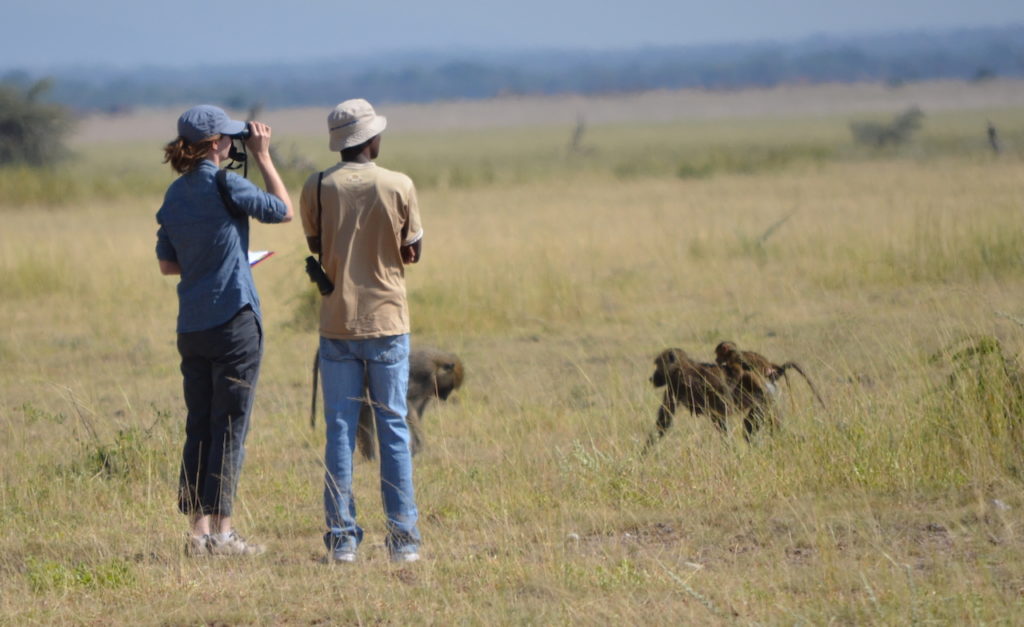Animals must solve a series of problems in life, such as finding food, escaping predation, and raising offspring. One of the main evolutionary adaptations animals have for solving these problems is to interact and form relationships with other members of their species. The goal of our research is to understand the evolutionary costs and benefits of social relationships, especially how these evolutionary consequences pertain to individual health, disease risk, and survival.
Our research follows two main strands
- How do social organization and behavior influence the spread of infectious organisms, including bacteria and parasites?
- How does an individual’s social context influence their health and fitness?
These strands span several levels of biological organization, from populations to whole organisms, and their associated microbes and parasites. We use diverse research techniques, ranging from behavioral observations of wild animals to immunology and noninvasive genetic tools. Our results are relevant to species conservation, the evolution of animal social relationships, as well as human and animal wellbeing.
Research systems
Our research questions require detailed information on the social relationships, health, and life histories of individual animals. To gain this information, I help lead one of the longest-running studies of a wild primate population in the world: the Amboseli Baboon Research Project (ABRP) in Kenya. Founded in 1971, ABRP has nearly 50 years of fine-grained, continuous data on the lives of over 2,000 individually known baboons. We collect data year-round and currently observe ~300 animals in five social groups. Projects with ABRP’s duration and breadth of data are rare, and the Project’s long-term perspective often yields unique insights because we can observe ecological and evolutionary processes unfold over full lifespans and multiple generations.
Research in the Archie lab involves fieldwork as well as genetic and parasitological work in the lab. When we’re in the field, we observe the behavior of wild mammals and collect samples for genetic analysis—usually from noninvasive sources such as dung. In the lab, we use microscopy and noninvasive genetic tools to characterize the microbes parasites infecting individual animals.
Research strands
How do social organization and behavior influence the spread of infectious organisms?
Group living is thought to have profound effects on individual risk of infection. But to date, empirical research on this topic has been limited by the fact that it is logistically difficult to directly track the movements of infectious agents in wildlife. The Archie lab helps solve this problem by using next-generation sequencing and population genetic tools to map the movements of harmful and beneficial infectious agents onto the social landscapes of wild mammals. Our current main focus is on social effects on microbiome composition and how social behavior interacts with other ecological and evolutionary processes to determine microbiome composition and function and parasite ecology. Read more about our recent projects on this topic…
How does an individual’s social context influence their health, and fitness?
Beyond social effects on the spread of infectious agents, social relationships can have powerful connections to other aspects of health. For instance in humans, social status has profound effects on individual stress physiology and immune function. Moreover, social isolation is a powerful predictor of human mortality, with effects comparable to other well-known risk factors, including smoking and obesity. Are these effects shared with other highly social species? What mechanisms underlie these effects? To what extent do social effects on health mediate the connections between social behavior and Darwinian fitness? Read more about our recent projects on this topic…

